Latest News
Audit fails to win U.S. backing for release of Afghan central-bank funds
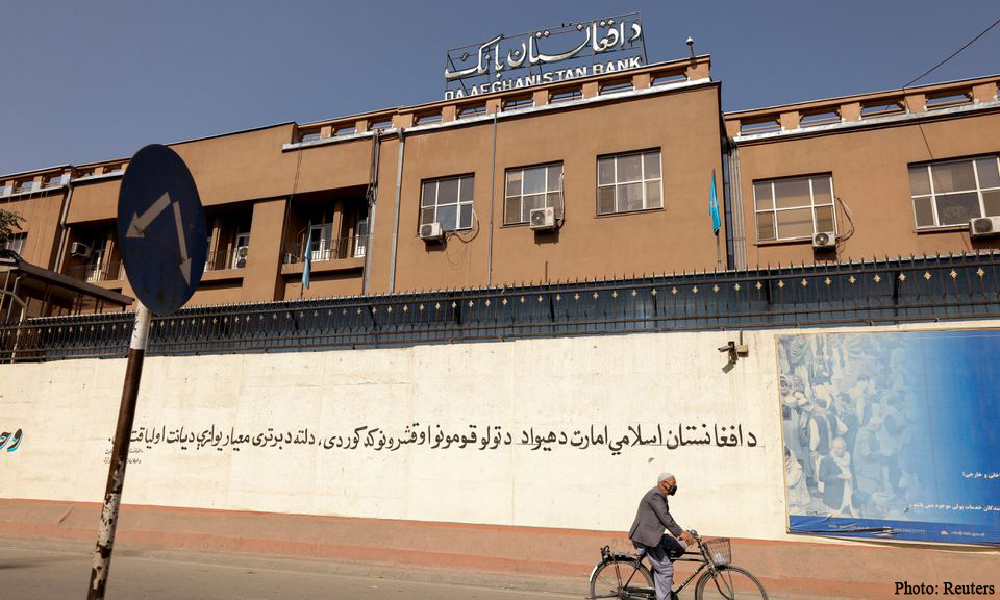
A U.S. funded audit of Afghanistan’s Islamic Emirate-run central bank has failed to win Washington’s backing for a return of bank assets from a $3.5 billion Swiss-based trust fund, said two U.S. officials and a former U.S. official, a move that would help ease the country’s financial crisis, Reuters reported.
The audit has not changed the U.S. Treasury’s view that the bank must make reforms before the department will support disbursements from the Afghan Fund to Da Afghanistan Bank (DAB), said a U.S. Treasury official on condition of anonymity.
The Swiss-based Afghan Fund was set up last year with half of about $7 billion in central bank funds that were frozen in the Federal Reserve Bank of New York in August 2021 after IEA took control of the country as the last foreign forces withdrew following two decades of war.
DAB must show that it is free “from political influence and interference,” said the Treasury official, referring to the need for professional bankers to replace the three IEA officials who oversee the bank and are under U.S. and U.N. sanctions.
It also must prove that it has “adequate” controls against money-laundering and terrorism financing and install a “reputable” independent monitor, said the Treasury official.
“Our assessment of DAB remains unchanged,” said one of the U.S. officials. Reuters quoted the two officials and the former U.S. official, who has knowledge of the U.S. position, spoke on condition of anonymity because of the confidentiality of the matter.
The IEA administration spokesman and a spokesperson for the Afghan central bank did not respond to request for comment.
Concerns in Washington and other capitals about the bank’s leadership and anti-money laundering safeguards are at the heart of a standoff over the IEA’s demand for the return of DAB cash frozen in the United States and other countries after the Islamic Emirate return.
Because the four-member board that oversees the trust fund must approve disbursements unanimously, the support of its U.S. government representative is essential.
Afghanistan remains mired in grave humanitarian and economic crises that some experts say has been worsened by U.S. restrictions hampering DAB’s ability to perform key central bank functions, such as ensuring stable exchange rates and prices, read the report.
The audit, funded by the U.S. Agency for International Development (USAID) and conducted by an outside contractor, examined DAB’s controls against money laundering and terrorism financing, and its banking oversight and payments departments, according to an April report by the U.S. Special Inspector General for Afghanistan Reconstruction (SIGAR).
The findings have not been made public, Reuters reported.
Calling the audit, a “preliminary assessment,” the Treasury official said its “limitations” suggested that “more comprehensive third-party assessment efforts may be needed.”
Shah Mehrabi, an Afghan-American economics professor who is on DAB’s governing board and co-chairs the Afghan Fund board, said the audit – which he has not seen – was completed in March and currently is with the State Department.
The State Department declined to comment.
Mehrabi and his co-chair, Anwar ul-Haq Ahady, a former DAB governor and former finance minister, told Reuters that they would consider the findings once they are available.
Mehrabi said use of the Afghan Fund’s assets should focus on stabilizing prices and ensuring banks had enough liquidity, as the entire financial system was at risk from declining foreign donor funds to Afghanistan.
The other $3.5 billion in DAB assets frozen in US is being sought in lawsuits against the IEA brought by families of victims of the Sept. 11, 2001, attacks on the United States. A U.S. judge in February ruled against the plaintiffs who are appealing.
Latest News
Afghan delegation to participate in Iran’s international expo
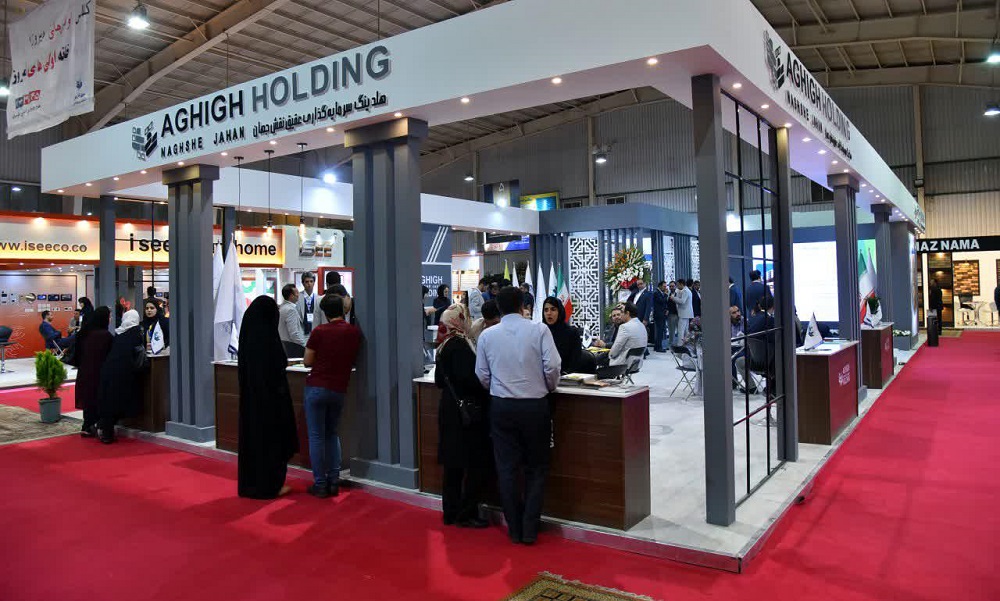
Iranian officials have announced that a 200-member delegation, comprising Afghan government officials and private sector representatives, will attend the 7th International Exhibition of Iran’s Export Capabilities.
Officials from the Islamic Emirate, meanwhile, consider the presence of Afghan traders at this exhibition to be significant, stating that showcasing domestic products will help promote and market Afghan goods.
Abdul Latif Nazari, Deputy Minister of Economy, said: “Economic cooperation between the private and public sectors of Afghanistan and Iran is in the interest of both countries.”
“The visit of the high-ranking delegation of the Islamic Emirate to Iran can play a vital role in expanding economic and trade exchanges between the two countries,” he added.
In addition, Afghanistan Chamber of Commerce and Investment (ACCI) said that 80 booths have been allocated to Afghan traders at the exhibition, where agricultural products, precious stones, and other Afghan goods will be showcased.
Several experts also stated that Afghanistan’s participation in regional and international exhibitions is important and can lead to stronger economic ties with other countries.
This comes as Iran remains one of Afghanistan’s key economic partners, with annual trade volume between the two nations exceeding $3 billion.
Latest News
14 kms of TAPI pipeline laid inside Afghanistan, says project manager
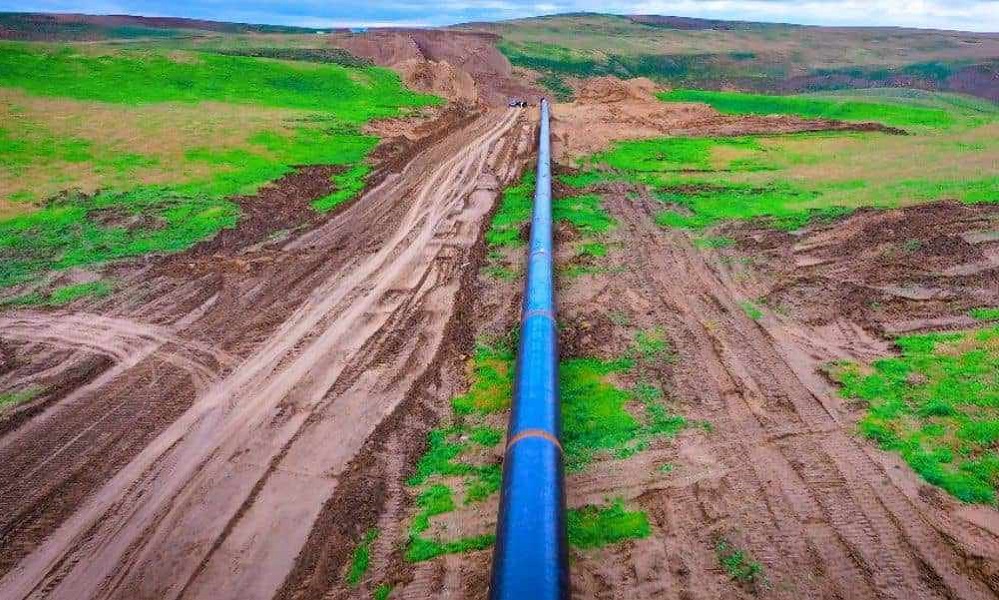
Baganch Abdullayev, the General Director of the TAPI project in Afghanistan, on Thursday met with Noor Ahmad Islamjar, the governor of Herat, for a report back on progress made in accelerating the pipeline-laying process of the Turkmenistan-Afghanistan-Pakistan-India project in the province.
The Herat governor’s press office said in a statement that Abdullayev shared a brief report on the progress of the TAPI project with Islamjar.
According to the statement, Abdullayev said so far 14 kms of pipeline has been laid while an additional 24 kms of ground has been levelled for the pipeline.
During the meeting, the governor of Herat also welcomed the efforts of TAPI project officials in advancing the work and assured the project head of the local administration’s full support in facilitating the swift progress of the project.
Once completed, TAPI pipeline will transport natural gas from the Galkynysh Gas Field in Turkmenistan through Afghanistan into Pakistan and then to India.
The pipeline was completed on the Turkmenistan side in 2024, and the project is currently expanding southbound in Herat Province of Afghanistan.
Latest News
WFP appeals for $25 million to help support Afghan returnees amid humanitarian crisis
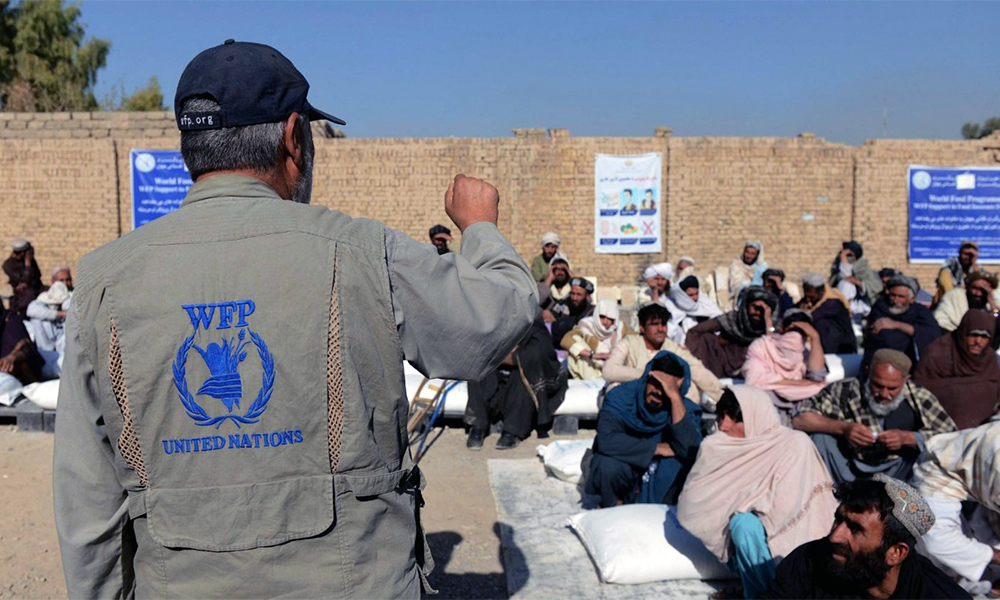
The World Food Programme (WFP) this week issued an urgent appeal for $25 million to address the escalating needs of Afghan refugees being expelled from Pakistan.
According to the WFP, thousands of Afghan families are crossing into Afghanistan from Pakistan every day and face serious food insecurity.
The organization also stated that millions in Afghanistan are grappling with severe hunger, and immediate aid of $25 million is needed to assist returnees.
On Wednesday, April 23, in a video shared on X, WFP’s head in Afghanistan, Mutinta Chimuka, visited the Torkham border crossing with Pakistan. During her visit, she highlighted the challenges faced by returnees, many of whom have spent their entire lives in Pakistan and are unfamiliar with Afghanistan.
Chimuka pointed out that many returnees have no income, employment, food, or shelter.
The WFP stressed that thousands of families are being forced to leave Pakistan, while 15 million people in Afghanistan are uncertain where their next meal will come from. The situation has become dire, with basic needs going unmet for a large portion of the population, the WFP said.
Chimuka warned that current aid efforts are insufficient to support the returnees, and new financial resources are urgently needed to address their needs by the end of the year.
Meanwhile, the pace of deportations and expulsions of Afghan migrants from neighboring countries, particularly Pakistan, continues to increase. The Pakistani Ministry of Interior reported that over 100,000 Afghan migrants have been returned since April 1.
The International Committee of the Red Cross (ICRC) has also raised alarm, noting that while thousands of refugees return every week, there are millions of Afghans who are currently facing poverty, homelessness, and difficult living conditions.
-

 World5 days ago
World5 days agoThousands of protesters rally against Trump across US
-

 Latest News4 days ago
Latest News4 days agoPolio vaccination campaign launched in Afghanistan
-

 International Sports2 days ago
International Sports2 days agoIPL 2025: Robo-Dog ‘Champak’ explained
-

 International Sports4 days ago
International Sports4 days agoIPL 2025: 14-year-old Vaibhav Suryavanshi becomes youngest IPL player
-

 Latest News3 days ago
Latest News3 days agoAriana Afghan Airlines increases flights to China
-

 Latest News3 days ago
Latest News3 days agoChina invites various Afghan delegations to attend Shanghai forums
-

 World3 days ago
World3 days agoPentagon chief Hegseth shared sensitive Yemen war plans in second Signal chat, source says
-
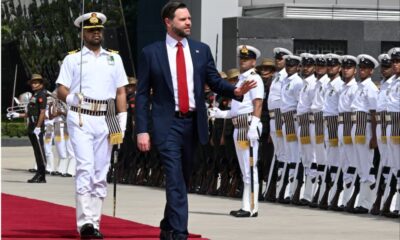
 Regional4 days ago
Regional4 days agoJD Vance arrives in India, to hold talks with Modi under US tariffs shadow
























